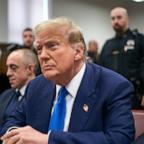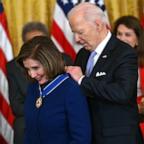Survey finds support for Fed, jitters on spending
NEW YORK -- Economists are pleased with the Federal Reserve's policy on interest rates but skeptical of the government's ability to rein in spending, curb greenhouse gases or overhaul health care, a survey finds.
The latest semiannual survey by the National Association for Business Economics, released Monday, indicates almost 70% of the 266 economists surveyed earlier this month think the Fed's monetary policy is "about right," up from 63% in March and 56% a year ago.
The results come as indicators point to an improving economy, presenting policymakers with wrenching decisions over how quickly to roll back measures taken in the past year to avert a financial collapse. Quick action risks plunging the economy into another dive, while moving too slowly could drive inflation.
Meanwhile, the Obama administration is taking ambitious steps to simultaneously curb greenhouse gases in the atmosphere, cut health care costs and reform financial regulation.
"This is almost certainly one of the fastest-moving and most controversial economic policy environments we have experienced in a generation," said NABE President Chris Varvares, president of Macroeconomic Advisers.
Fed Chairman Ben Bernanke, appointed by the president last week to a second four-year term, cut the fed funds rate to near zero last December to reduce the cost of borrowing and introduced a slew of emergency lending programs.
The survey found economists split on what should come next, with 49% saying the Fed should leave monetary policy alone over the next six months and 45% in favor of a more restrictive policy. However, 56% said they expect the Fed to leave interest rates untouched rather than hiking rates to avoid inflation (44%).
While economists think the Fed is targeting a 2% inflation rate, they expect the actual rate of core inflation to average 3% from 2014 to 2018.
The prediction reflects economists' concerns about the federal government's ability to reverse the steps it has taken to stimulate growth. A large majority doubt federal lawmakers can bring down spending. Three quarters said they want a more restrictive fiscal policy over the next two years — only 28% expect it to happen.




